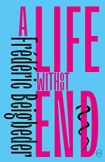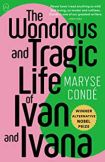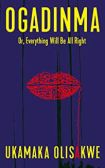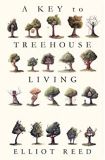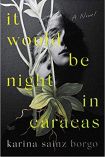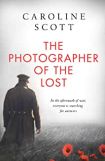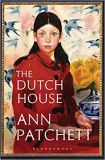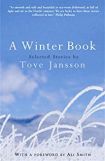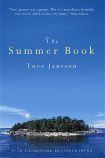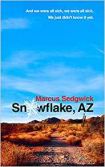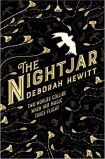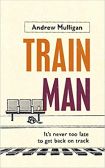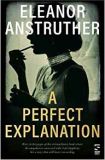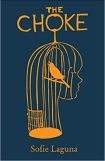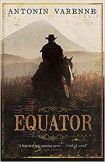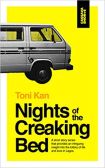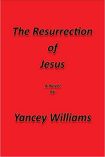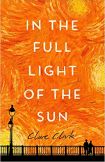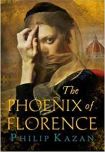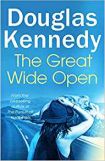Newest Literary Fiction Reviews
Review ofA Life Without End by Frederic Beigbeder and Frank Wynne (translator)
I looked at the calendar the other week, and disappointedly realised I have a birthday this year – I know, yet another one. It won't be one of the major numbers, but the time when I have the same number as Heinz varieties looms on the horizon. And then a few of the big 0-numbers, and if all goes well, I'll be an OBE. (Which of course stands for Over Bloody Eighty.) Now if that's the extent of my mid-life crisis, I guess I have to be happy. Our author here doesn't use that exact phrase, but he might be said to be living one. Determined to find out how to prolong life for as long as he wants – he would like to see 400 – he hops right into bed with the assistant to the first geneticist he interviews, and they end up with a child, which is at least a way of continuing the life of his genes, and a motive to keep on going. But how can he get to not flick the 'final way out' switch, especially when foie gras tastes so nice? Full Review |
Review ofThe Wondrous and Tragic Life of Ivan and Ivana by Maryse CondéWe live in a post- world: post-colonialism, post-modernism, post truth. The list goes on. There are numerous works that utilise the prefix post- in their categorisation, but perhaps none more so than Maryse Condé. In her new novel, The Wondrous and Tragic Life of Ivan and Ivana, Condé writes with fervour about the scars left by colonialism on the countries to which it latched itself. Ivan and Ivana are twins born in Guadeloupe, a French overseas department. They grow up with intense and passionate feelings for each other. As they grow up and move overseas, the ravages of a post-colonial society drive them apart with tragic consequences. Full Review |
Review ofOgadinma Or, Everything Will Be All Right by Ukamaka OlisakweThe new novel by Ukamaka Olisakwe is a look at the trauma and heartache of being a woman in 1980s Nigeria. The title is Ogadinma Or, Everything Will Be All Right. Ogadinma is the eponymous heroine of the story.. We are with her in every scene and it is her narrative voice that leads the story, although Olisakwe writes in third person. This provides a sense of detachment for the reader and highlights the isolation of Ogadinma. She is exiled from her father's home and sent to Lagos where she is married to an older man named Tobe. Their marriage descends into violence and indignities and Ogadinma must utilise her resourcefulness to escape. Full Review |
Review ofA Key to Treehouse Living by Elliot ReedThis is the story of a young boy, William Tyce, who is being raised by his uncle after the death of his mother and his father's abandonment. However, it isn't told in the usual narrative way. Instead, the book is made up of glossary entries, written by William, as a way of describing certain events, situations and emotions. It runs alphabetically, starting with ABSENCE, then moving to ALPHABETICAL ORDER. As I began to read I did find myself thinking 'what on earth?!' but I soon grew used to the style, and was instead caught up in William's story. Full Review |
Review ofIt Would Be Night in Caracas by Karina Sainz Borgo and Elizabeth Bryer (translator)It Would Be Night in Caracas illuminates the everyday horrors of modern day Venezuela. It begins with the death of Adelaida Falcon's mother and chronicles Adelaida's coming to terms with her new solitude in this world and her attempts to escape it. Danger stalks the shadows and, in a society where the establishment is crumbling, who can you turn to? Full Review |
|
|
Photographer of the Lost by Caroline Scott
May 1921. Edie receives a photograph through the post. There is no letter or note with it. There is nothing written on the back of the photograph. It is a picture of her husband, Francis. Francis has been missing for four years. Technically, he has been "missing, believed killed" but that is not something that a young widow can believe. She hangs on the word 'missing', disbelieving the word killed. Full Review |
|
|
The Dutch House by Ann PatchettWhen we first meet Danny and his elder sister, Maeve Conroy, they're both living at The Dutch House with their parents and under the gaze of the portraits of the former owners whose oil paintings still hang on the walls. It's a strange family dynamic: Cyril Conroy is distant and the closest Danny seems to come to him is when he goes out with him on a Saturday collecting rents from properties the family owns. Elna Conroy is loving, but absent increasingly often until the point comes when the children are told that she will not be returning. In other circumstances this might have affected Maeve and Danny deeply, but their primary relationship is with each other. It's a bond which only death will break. Full Review |
|
|
A Winter Book by Tove Jansson
Tove Jansson's worldwide fame lasts on the Moomin books, written in the 1940s and later becoming television characters of the simplicity, naivety and sheer 'goodness' that would later produce flowerpot men or teletubbies. Simple drawings, simple stories, simple goodness. What is often forgotten outside of her native Finland is that she was a serious writer…that she wrote for adults as well as children…and that she had a feeling for the natural world and the simple life that not only informed those child-like trolls but went far beyond any fantasy of how the world might be. Full Review |
|
|
The Summer Book by Tove JanssonTove Jansson's short novel about Summer is several worlds away from the Moomintrolls she is most famous for outside her native Scandinavia. Book yourself an afternoon this Summer, and take yourself and The Summer Book somewhere quiet, preferably within sight and sound of the sea, settle back and prepare to be transported. Full Review |
|
|
Snowflake, AZ by Marcus SedgwickThis is a deep, interesting read unlike any book I've read in quite some time. The novel's story follows a young man named Ash in the process of joining a community of sick people in the curiously named town of Snowflake, Arizona. These people are sick, but it's not a sickness you've heard of. Instead, they're environmentally ill – affected by household chemicals and fabrics, pesticides, static electricity, and radiation – and their only cure is to stay in the town away from the real world. Though it's about a real place, the people in it are fictional. It really is a place apart, quite literally cut off from the outside world – people are even required to decontaminate themselves thoroughly before becoming fully integrated. Full Review |
|
|
The Nightjar by Deborah HewittThe Nightjar is an unusual and exciting story. Alice Wyndham lives a normal life in London until she finds a box on her doorstep one morning and her life begins to unravel, fast. From that very moment, her life is flooded with magic, loss, expectation and particularly, betrayal. As everything around her shifts, all that she knows, all that she thinks she knows, must change. Who can she trust? Who must she trust? Who will she trust? More importantly, can she even trust herself? Full Review |
|
|
Train Man by Andrew Mulligan
I came to this book thinking I knew just what to expect, even though it is the author's debut in the adult novel market (hence the more mature name – he used to be an Andy). I thought it simple to sum up, the tale of a middle-aged man who knows too much about train travel having his life turned around in the most pleasant way. I hadn't opened it when I'd shelved it alongside Chris Cleave, and David Nicholls. I expected some whimsy, some warmth and some affirmative loveliness. More fool me. Full Review |
|
|
A Perfect Explanation by Eleanor Anstruther
Enid Campbell was a woman who, on the face of it, had everything. Leading the life of an aristocrat – full of inherited wealth and splendour, glamourous locales and high expectations. Only Enid's life has been plagued by mental illness – undiagnosed, untreated and threatening both Enid and those close to her. After losing custody of her children, Enid sells her son to her sister for £500 – but is this an act of greed, or an act of desperation? Exploring the true story of her own grandmother, Eleanor Anstruther has found the perfect subject for an explosive, moving and beautifully well written debut. Full Review |
|
|
The Choke by Sofie LagunaThere's a dull, dispiriting pang of disappointment that comes when you try something everyone else loves and find out that you're really not into it. Coffee. Ice skating. A new Netflix series. Books are like that, but doubly so. Full Review |
|
|
Equator by Antonin Varenne and Sam Taylor (translator)
It strikes me that nobody can speak well of the Wild West outside the walls of a theme park. Our agent to see how bad it was here is Pete Ferguson, who bristles at the indignity of white man against Native 'Indian', who spends days being physically sick while indulging in a buffalo hunt, and who hates the way man – and woman, of course – can turn against fellow man at the bat of an eyelid. But this book is about so much more than the 1870s USA, and the attendant problems with gold rushes, pioneer spirits and racial genocide. He finds himself trying to find this book's version of Utopia, namely the Equator, where everything is upside down, people walk on their heads with rocks in their pockets to keep them on the ground to counter the anti-gravity, and where, who knows, things might actually be better. But that equator is a long way away – and there's a whole adventure full of Mexico and Latin America between him and it… Full Review |
|
|
Nights of the Creaking Bed by Toni Kan
Nights of the Creaking Bed is a collection of short stories by Toni Kan. The series of stories tell of the lives and lusts of an assortment of characters living in and around Lagos, Nigeria. Nigeria, in this collection, is imbued with its very own heart of darkness. Danger stalks the shadows and people are killed for nothing more than a wrong look. Kan writes with a vitality and passion that allows these cynical stories to achieve a glimmer of hope. Full Review |
|
|
The Resurrection of Jesus by Yancey WilliamsIn March 1990 two police officers entered Boston's Isabella Stewart Gardner Museum. They left with thirteen famous paintings by Rembrandt, Degas and Vermeer. The frames remain empty to this day: whilst there might have been rumours about the whereabouts of the paintings, even promises that the case was about to be solved, the paintings are still missing. Yancey Williams has a theory, which he delaborates on in his novel The Resurrection of Jesus, and whilst his suspects might seem unlikely, who's to say that he's wrong? Forget the assertions that it was down to the Mafia and meet Jésus Ángel Escobar and Hiram Johnny Walker Quicksilver. Full Review |
|
|
In The Full Light of the Sun by Clare Clark
In 1930's Berlin, three people obsessed with art find themselves swept up into a scandal. Emmeline, a wayward young student, Julius, an anxious middle-aged art expert, and Rachmann, a mysterious art dealer, live in the politically turbulent Weimar Berlin, and soon find themselves whipped up into excitement over the surprise discovery of thirty-two previously unknown paintings by Vincent Van Gogh. Based on a true story and unfolding through the subsequent rise of Hitler and the Nazis, the discovery of the art allows these characters to explore authenticity, vanity and self-delusion. Full Review |
|
|
The Phoenix of Florence by Philip Kazan
Deep in the Tuscan countryside of fifteenth century Italy, Onoria survives a massacre that destroys her family and home. Alone in the forest, she meets a band of soldiers who, believing her to be a boy train and develop her – and the determined Onoria becomes a mercenary – desperate to avoid any situation in which she may feel vulnerable again. Along the way, she meets ex-soldier Celavini, whose journey to Florence sees him investigating two brutal murders. As he digs further and uncovers links to his own family history, Celavini must revisit the past he shares with Onoria, in the hope that they can lay the ghosts of their shared history to rest, before it's too late... Full Review |
|
|
The Great Wide Open by Douglas KennedyDouglas Kennedy's The Great Wide Open has been described as epic by just about everyone, and it often feels as though that was the intention. Though the novel often feels like a pastiche of the great American novel – epic in scope, preoccupied with matters of money and literature, fixated with New York – it often feels more like Kennedy is trying to reverse-engineer the concept altogether. Initially, the novel presents itself as an intimate study of family drama, in the latter half of the novel it smoothly turns to examining the turn of American society since the 70s, and the rapid rise of the hyper-capitalist neoliberal values that have dominated the west since the election of Ronald Reagan. Though it takes place over a twenty-year period between the 70s and the 90s, it notably always keeps one an eye on the present day (Trump, of course, makes an inevitable and slightly incongruous cameo) such that what happens links subtly into current affairs without ever explicitly referencing them. Full Review |
